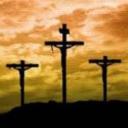Yahoo Answers is shutting down on May 4th, 2021 (Eastern Time) and beginning April 20th, 2021 (Eastern Time) the Yahoo Answers website will be in read-only mode. There will be no changes to other Yahoo properties or services, or your Yahoo account. You can find more information about the Yahoo Answers shutdown and how to download your data on this help page.
Trending News
Revelations 22 :18-19 Catholics say this verse pertains only to Revelations?
Revelations 22:18-19 18For I testify unto every man that heareth the words of the prophecy of this book, If any man shall add unto these things, God shall add unto him the plagues that are written in this book:
19And if any man shall take away from the words of the book of this prophecy, God shall take away his part out of the book of life, and out of the holy city, and from the things which are written in this book.
Roman Catholics say that in this verse the word "book" should of been translated "scroll" and they say because of the incorrect translation you can't change anything in that book which is Revelations but in other books of the bible it's ok , Well then explain this verse Deuteronomy 4:2 2 Ye shall not add unto the word which I command you, neither shall ye diminish ought from it, that ye may keep the commandments of the LORD your God which I command you. Now the bible is the law book or a commandment so in this verse God is refering to the entire bible not parts of it??
?
14 Answers
- Anonymous1 decade agoFavorite Answer
Revelations is the last Book of the Bible, only because it was placed there by man.
It makes sense to place it last, due to its subject matter.
But, you are right about Deut. and there is absolutely no doubt where that Book is to be placed.
And, they both say the same thing.
Also, I don't think Catholics look at Rev. like protestant faiths do.
The Catholic Bible doesn't even call it Revelations; they call it the Apocalypse.
I'm looking at a Cath. study bible right now and it pretty much attributes everything to Nero and others of that time.
They also have a completely different interpretation of 'the city on 7 hills'.
Source(s): ex-catholic born again to Jesus - ?Lv 71 decade ago
You do understand that the Bible is a compilation of books, right?
"the prophecy of this book" That is the Apocalypse of St. John the Apostle.
Make sense now?
About Deuteronomy. If that were the case then Deuteronomy Chapter four verse two would have been the last thing written, correct?
You shall not add to the word, that I speak to you, neither shall you take away from it: keep the commandment of the Lord your God which I command you. [Deut. iv. 2]
2. You shall not add.] Moyses can not mean, that no more should be written, nor commanded; for then the last chapter of this book, and the rest of the Bible should not have been written after his death; neither ought the Priests or Prophets to have commanded any thing not expressed in the law. And whereas Protestants say that all other Scriptures are included in the law, or pertain to the explication or performance thereof: we also answer that unwritten Traditions both in the old and new Testament are likewise implied, included, or pertain to the explication or performance of the law. For even as the written doctrine of the Prophets, yea and of Christ, and his Apostles, in general is contained in the law of Moyses, so also are certain fasts, Feasts, rites, ceremonies and other traditions proved and confirmed by general speeches and axioms written in holy Scriptures, as by our Saviours words to his Apostles Luc. 10. He that hearth you, hearth me. St. Pauls to other Christians (I. Cor. 10.) other things when I come I will dispose (2. Thess. 2.) Hold the traditions which you have learned: and the like. Whereupon St. Augustine Li. 1. cont. Crescon. c. 33. giveth this rule, that albeit an evident example can not be produced of holy Scripture, yet the truth of the same Scriptures is held by us, when we do that pleaseth the whole Church, which the authority of Scriptures commendeth. The same he teacheth. Epist. 80. and in many other places. So do St. Epiphanius in compend. fidei Cathol. S Jerome. Dialog. cont. Lucifer. c. 4. St. Chrysost. ho. 4. in 1. Thossal 4. St. Basil. de Spiritu Sancto, c. 39. St. Ireneus li. 3. c. 4.
Source(s): Douay Rheims Bible 1610 AD. - imacatholic2Lv 71 decade ago
Point 1: When Revelation was written ir was just the one book, The New Testament and therefore the 73 books of the Bible as we know it were not put together until over 200 years later by the Catholic Church under the inspiration of the Holy Spirit.
Point 2: Since the time when the Church assembled the Bible, she has not added anything to it so therefore you entire paragraph seems a bit silly and pointless.
With love in Christ.
- How do you think about the answers? You can sign in to vote the answer.
- GregoryLv 71 decade ago
so do many others
jesus says this book
but the meaning is in general do not add or take away from his word
KJV: Deuteronomy 4:2. Ye shall not add unto the word which I command you, neither shall ye diminish ought from it, that ye may keep the commandments of the LORD your God which I command you.
KJV: II Thessalonians 3:14. And if any man obey not our word by this epistle, note that man, and have no company with him, that he may be ashamed.
if we obey not the word of god we will receive punishment from god as stated in revelation 22:18-19
- FarsightLv 71 decade ago
While Catholics, and really, anyone who knows the first thing about scripture, do say that the verse in revelation does refer only to the book of revelation (what other books of the bible have words of prophecy becides Daniel?), Catholics do NOT say that it's ok to change the other books. I don't know where you heard that, but its completely and utterly untrue.
Shimon N - if all of the bible is prophetic, then please, tell me what predictions were made in Jesus' parables, his crucifixion scene, and the story of creation.
Atheism falls again - you should probably try to learn the difference between a chalice and a cup. Revelation says its a cup of abominations. what is in the picture is a chalice. And yes - there is a difference. And that's just the tip of the iceberg in the matter of what's wrong with trying to connect the Catholic Church to the whore of babylon.
edit - <<Jesus preached through Israel looking for fruit of repentance for three years but couldn't find any.>>
...except he did find some. He found a lot. And giving one example that has nothing to do with the three I asked for is not answering the question.
- lainiebskyLv 71 decade ago
When the Revelation of John was written, the New Testament canon wouldn't exist for a couple of centuries and Revelation was the last book accepted. The Bible as we know it didn't exist. It's ludicrous to believe that the passage refers to the whole Bible since no such thing existed at the time. The author was just using the first century equivalent of a copyright.
Yes, the Catholic Church knows more about the Bible than you appear to.
The Deuteronomy verse appears to refer to Deuteronomy. Same reason - there was no collection of texts called the "Bible" until long after it was written.
- cristoiglesiaLv 71 decade ago
Ver. 2. Add any thing repugnant to the spirit of my law. No interpretation of this kind can be admitted. But this does not condemn well authorized traditions, and laws enacted by lawful superiors. The Jews always boast of their close adherence to the letter of the law, but they often forget the spirit of it, and by their traditions render it deformed, like a carcass. Demosthenes takes notice, that the Locrians had such a regard for their laws, that if any one chose to propose any fresh ones, he came with a rope about his neck, that if they did not meet with the approbation of the people, he might be strangled immediately. (Calmet) --- Moses cannot mean to forbid any more divine or civil commandments being written by Josue and the subsequent prophets. He only enjoins that nothing shall be altered by human authority. The other books of the Old Testament serve to explain the law; and so do the apostolical traditions (Worthington) afford great assistance to understand the true meaning of all the Scriptures, and hence we learn whatever we have to perform, without danger of being led astray. (Haydock) --- To these the Scriptures frequently refer. He that heareth you, heareth me, Luke x. Hold the traditions which you have learnt, 2 Thessalonians ii. The rest I will set in order, when I come, 1 Corinthians xi. 34. Hence St. Augustine (contra Cresc. i. 33) observes, "Though no evident example can be produced from Scripture, yet we hold the truth of the same Scripture, when we do what meets with the approbation of that Church whose authority the Scripture establishes." See ep. 80, St. Chrysostom in 1 Thess. iv.; St. Irenæus, Against Heresies iii. 4. (Worthington) --- The Jews themselves never had the folly to imagine with the modern innovators, that all laws both of a religous or civil nature were here proscribed. Under David, Mardocheus, and the Machabees, various laws and feasts were commanded, and observed in the true spirit of the law, 1 Kings xxx. 25., and Esther ix., and 1 Machabees iv. God does not leave to the discretion of the Jews, the appointing of different victims, &c., in his worship, (chap. xii. 30,) as they might very easily give way to the superstitious observances of their neighbours, and these things that had been sufficiently determined. But he enjoins all to obey the declarations of the priests and judges, chap. xvii. 10. (Bellarmine) (Tirinus) --- Thus when the Apocalypse records a prohibition similar to this, (Apocalypse xxii. 18, 19,) it is not intended to seal up the divine volume, so that nothing more shall be admitted into it, for St. John wrote his gospel afterwards. But it must be explained in the same sense as this passage, and condemns all those who, of their own authority, would set up fresh doctrine in opposition to the word of God. Let Protestants consider if they be not concerned in this caution, when they not only cut off whole books of Scripture, but deny the authority of the Church itself, without which the Scripture can be of little service. They are the book sealed with seven seals, impenetrable to man without the aid of the Divine author; (Apocalypse v. 5;) and this aid he will never grant to those who obstinately refuse to hear the Church, Matthew xviii. 17., and 2 Peter i. 20. (Haydock)
In Christ
Fr. Joseph
- Anonymous5 years ago
This warning against adding or subtracting puts the book of Revelation on the same level as Old Testament words of God, (Deut. 4:, 12:32). The word of God is to be protected from corruption, and distinguished from mere human works. Lamb, Whether John is speaking about Just Rev. or the entire holy Scriptures, It doesn't matter as much, because those who have changed the Bible have altered scripture in Rev. as well. God is VERY clear on altering the Scriptures...If you are going to translate the Bible, you had better know what the hack you are doing. Remember...All Scripture is inspired by God. I think it is no mistake that God puts this edict at the end of the Bible..I think it is referring to all of the gospel, but that is just MY impression.
- Mike KLv 71 decade ago
Hello Steve,
I'm Roman Catholic and have not heard any other Catholics or priest say this. In fact some of us use these verses to show the Mormons and JW's (eg in the beginning there was "a"God) the errors of their ways in changing scripture and adding to it... a whole new book in the Mormon's case. Are you sure that you are not mixed up with their answer?
Cheers,
Michael Kelly







